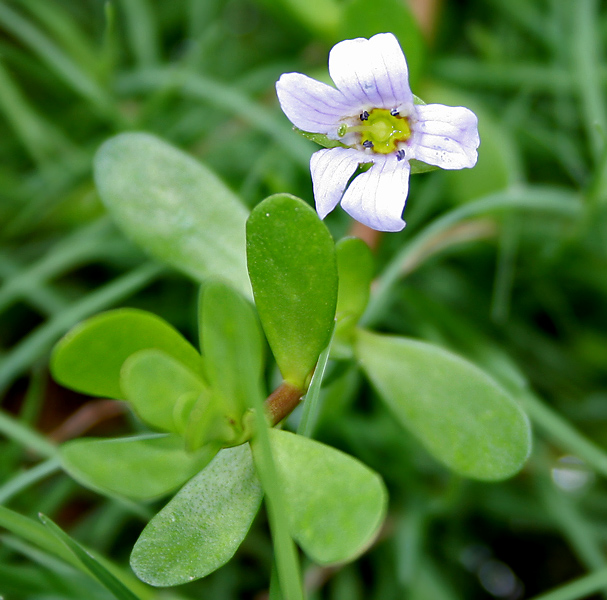 |
| Bacopa. Source: JM Garg |
Ashwagandha, or Withania somnifera, has been used for centuries in Ayurvedic medicine as a rasayana, an antiaging, pro-longevity remedy. Its 'specialty' is physical performance. In a study of healthy, athletic adults, taking 300mg of ashwagandha twice a day doubled their oxygen consumption after 12 weeks, compared to the placebo group. Increased oxygen consumption indicates better cardiovascular endurance. In a second study, volunteers taking 300mg twice daily showed greater improvements in muscle strength compared to the placebo group. After only eight weeks, the men taking ashwagandha could bench-press 101 pounds, compared to 58 pounds; they could also lift 31.9 pounds in leg-extension exercises, compared to 21 pounds. Biochemical test results showed that men taking ashwagandha had a greater reduction of exercise-induced muscle damage, a greater reduction in body fat and...a 4.3 times increase in testosterone levels! This could mean a lot for women going through menopause, and men going through andropause.
Bacopa monnieri, commonly known as brahmi or water hyssop, 'specialises' in cognitive function. One trial showed that taking 125mg of brahmi every day led to significant improvements in memory, learning and mental control. Sounds like the perfect remedy for students! Another demonstrated its ability to improve cognitive performance and mood soon after multitasking, a bad habit of students and nearly everyone else! Multitasking is inherently stressful, and does affect mental performance. It is not an "adulting" badge of honour.
Cordyceps sinensis, a fungus used in traditional Chinese medicine, has a few specialties, such as immunity. In a study on mice, cordyceps was shown to have antioxidant activity and increase production of immune chemicals that, while inflammatory, are helpful in acute infection. Fortunately, it does not overstimulate the production of these chemicals. In fact, although it can boost the functioning of immune cells, other research has shown anti-inflammatory ability, and even an ability to help anti-rejection drugs protect transplanted organs! Overall, you don't have to let your health suffer during times of stress, even when it feels like you have to put yourself last, you owe yourself proper self-care.
No comments:
Post a Comment